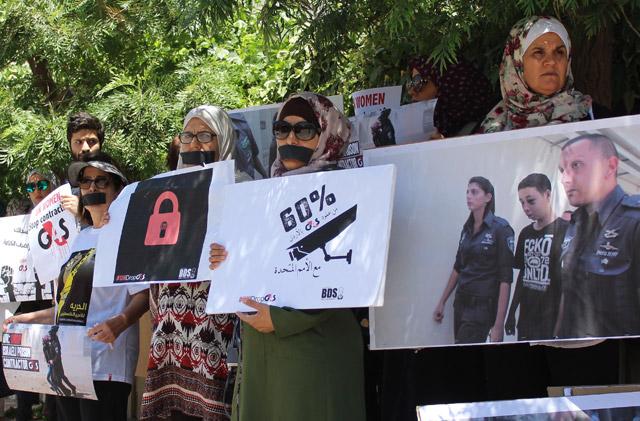You are here
'UNICEF terminates services of security contractor that operates in Israel'
By JT - Mar 01,2016 - Last updated at Mar 01,2016
AMMAN — A new security services company began manning the UNICEF station in Amman on Tuesday after the UN agency decided to terminate its relationship with G4S, a British-Dutch security company which has "extensive activities in Israel", according to activists.
The Boycott, Divestment and Sanctions (BDS) movement in Jordan said in a statement that the G4S has been coming under increasing pressure globally demanding that it pull out of Israel and stop supporting its occupation policies.
"We are glad that UNICEF followed the UNHCR and ended its contract with G4S. The United Nations should honour human rights, not only by demanding that Israel respect them, but also by leading by example and refraining from paying $2.6 million a year in security services to G4S in Jordan alone," a statement quoted activist Yazid Halaseh, of the BDS movement in Jordan, as saying.
Over the past year, BDS and other civil society organisations have addressed UN agencies in meetings, protests, and through social media demanding that they terminate their contracts with G4S.
"We sincerely hope that other UN agencies in Jordan... will follow UNICEF and UNHCR and immediately terminate all G4S contracts," Halaseh added.
In 2007, G4S signed a contract with the Israeli Prison Authority to provide security systems and other services for Israeli prisons that hold Palestinian prisoners, including children.
G4S provides systems for the Ketziot and Megiddo prisons, as well as, equipment for Ofer prison and Kishon and Moskobiyyeh detention facilities, at which human rights organisations have documented systematic torture and ill treatment of Palestinian prisoners, the BDS Jordan statement said.
Israeli military checkpoints, that restrict the movement of Palestinian, and the Erez checkpoint, which isolates Gaza, are also equipped by G4S services.
Related Articles
AMMAN – The Jordan BDS (Boycott, Divestment and Sanctions movement) organised a sit-in in front of the United Nations offices in Amman on We
AMMAN — The United Nations Entity for Gender Equality and the Empowerment of Women (UN Women) in Jordan has dropped its contracts with the w
AMMAN — The national Boycott, Divestment and Sanctions (BDS Jordan) movement has called on Jordanians to maintain a stance against the Israe














